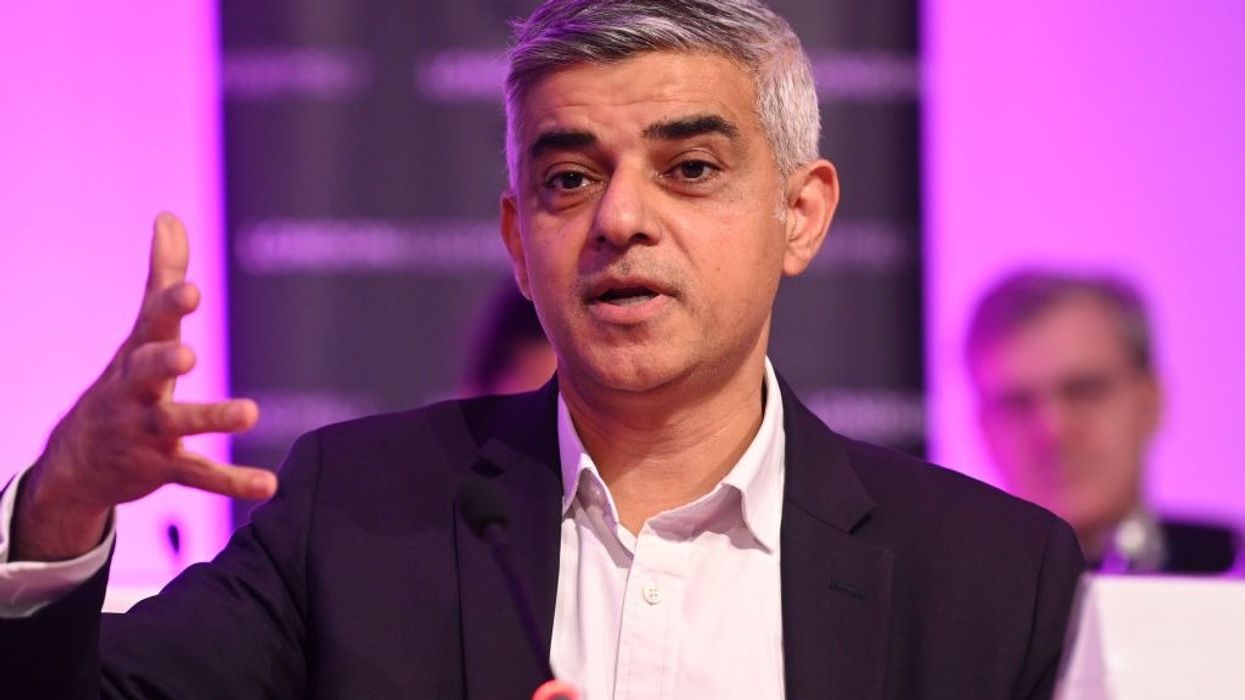London mayor Sadiq Khan has said that he is suffering from a 'cumulative' type of post-traumatic stress disorder (PTSD) due to a combination of the regular death threats as well as dealing with the aftermath of disasters and terror attacks.
Khan added that his doctor friend had told him about the condition.
In an interview with the Guardian, Khan revealed that Covid had affected his mental health and he lost his 'mojo' during lockdown.
“I didn’t have clarity of thinking. I wasn’t so sparky. I wasn’t inspiring my team,” he told the newspaper.
Khan, who will fight for a third term as mayor next year, has round-the-clock security similar to the prime minister and the King.
Since becoming mayor in 2016, he has been receiving death threats frequently, and the level of threat against Khan has escalated even further, especially after being attacked on Twitter by Donald Trump.
According to Khan, threats had affected his mental health, along with dealing with the aftermath of the deadly Grenfell Tower fire and terror attacks in London.
“By the way, I’m not comparing what I am going through to some of the stuff people go through – as a lawyer my clients with PTSD were asylum seekers and refugees," Khan was quoted as saying by the Guardian.
“I would never give equivalence to what I am going through. Nor would I ever want people to feel sorry for me. I’m very privileged to do the job I do."
He pointed out that mental health is fragile if it's ignored and he is not afraid to talk about it.
British Pakistani Khan won elections three terms as MP for Tooting, twice so far as mayor and has made many enemies along the way.
During the interview, Khan addressed various issues, including the shortage of affordable housing in the city.
He said that his adult daughters were still living at home due to the housing crisis.
“My children have finished their degrees and are living at home. By 2030, one in three 30-year-olds will still be living with their mum and dad. I love my kids but I want them to leave at some stage, right? So we’ve got to fix the housing crisis. I was 24 when I bought my first home. That’s unthinkable now," he is reported to have said.
He emphasised the urgency of resolving the housing crisis, stating that by 2030, one in three 30-year-olds would still be living with their parents.
Khan revealed his ambition to serve six terms as mayor, aiming to create a city where young people have a sense of hope for the future rather than worrying about what lies ahead.
He acknowledged that he is likely to face a Tory candidate who opposes his plans for expanding London's ultra-low emission zone air quality scheme.
Environmental issues were also a key focus for Khan, who wrote a book on pollution and the climate emergency. He admitted that his environmental record as a Labour MP was mixed, having supported a third runway at Heathrow and driven polluting vehicles. However, his perspective changed when he developed asthma as an adult.
Khan highlighted the hidden danger of air pollution, particularly nitrogen oxide, which damages cells and organs without being visible or easily detectable.
Khan's popularity has faced a decline recently. According to a YouGov poll, 35 per cent of Londoners thinking Khan is doing a good job and 50 per cent saying he is doing badly
He currently resides in Tooting with his wife, Saadiya, and daughters Anisah and Ammarah.





